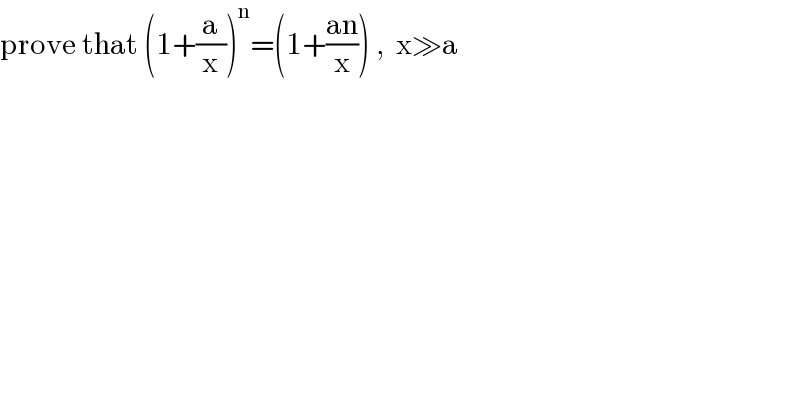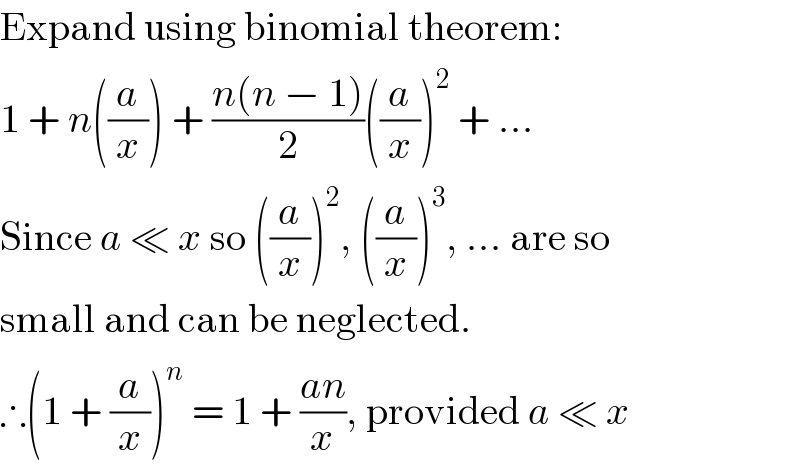
Question Number 17957 by Arnab Maiti last updated on 13/Jul/17

$$\mathrm{prove}\:\mathrm{that}\:\left(\mathrm{1}+\frac{\mathrm{a}}{\mathrm{x}}\right)^{\mathrm{n}} =\left(\mathrm{1}+\frac{\mathrm{an}}{\mathrm{x}}\right)\:,\:\:\mathrm{x}\gg\mathrm{a} \\ $$
Answered by 42 last updated on 13/Jul/17

$$\mathrm{Expand}\:\mathrm{using}\:\mathrm{binomial}\:\mathrm{theorem}: \\ $$$$\mathrm{1}\:+\:{n}\left(\frac{{a}}{{x}}\right)\:+\:\frac{{n}\left({n}\:−\:\mathrm{1}\right)}{\mathrm{2}}\left(\frac{{a}}{{x}}\right)^{\mathrm{2}} \:+\:... \\ $$$$\mathrm{Since}\:{a}\:\ll\:{x}\:\mathrm{so}\:\left(\frac{{a}}{{x}}\right)^{\mathrm{2}} ,\:\left(\frac{{a}}{{x}}\right)^{\mathrm{3}} ,\:...\:\mathrm{are}\:\mathrm{so} \\ $$$$\mathrm{small}\:\mathrm{and}\:\mathrm{can}\:\mathrm{be}\:\mathrm{neglected}. \\ $$$$\therefore\left(\mathrm{1}\:+\:\frac{{a}}{{x}}\right)^{{n}} \:=\:\mathrm{1}\:+\:\frac{{an}}{{x}},\:\mathrm{provided}\:{a}\:\ll\:{x} \\ $$
Commented by Arnab Maiti last updated on 19/Jul/17

$$\mathrm{Please}\:\mathrm{solve}\:\mathrm{the}\:\mathrm{question}\: \\ $$$$\mathrm{without}\:\mathrm{using}\:\mathrm{binomial}\:\mathrm{theorem}. \\ $$
